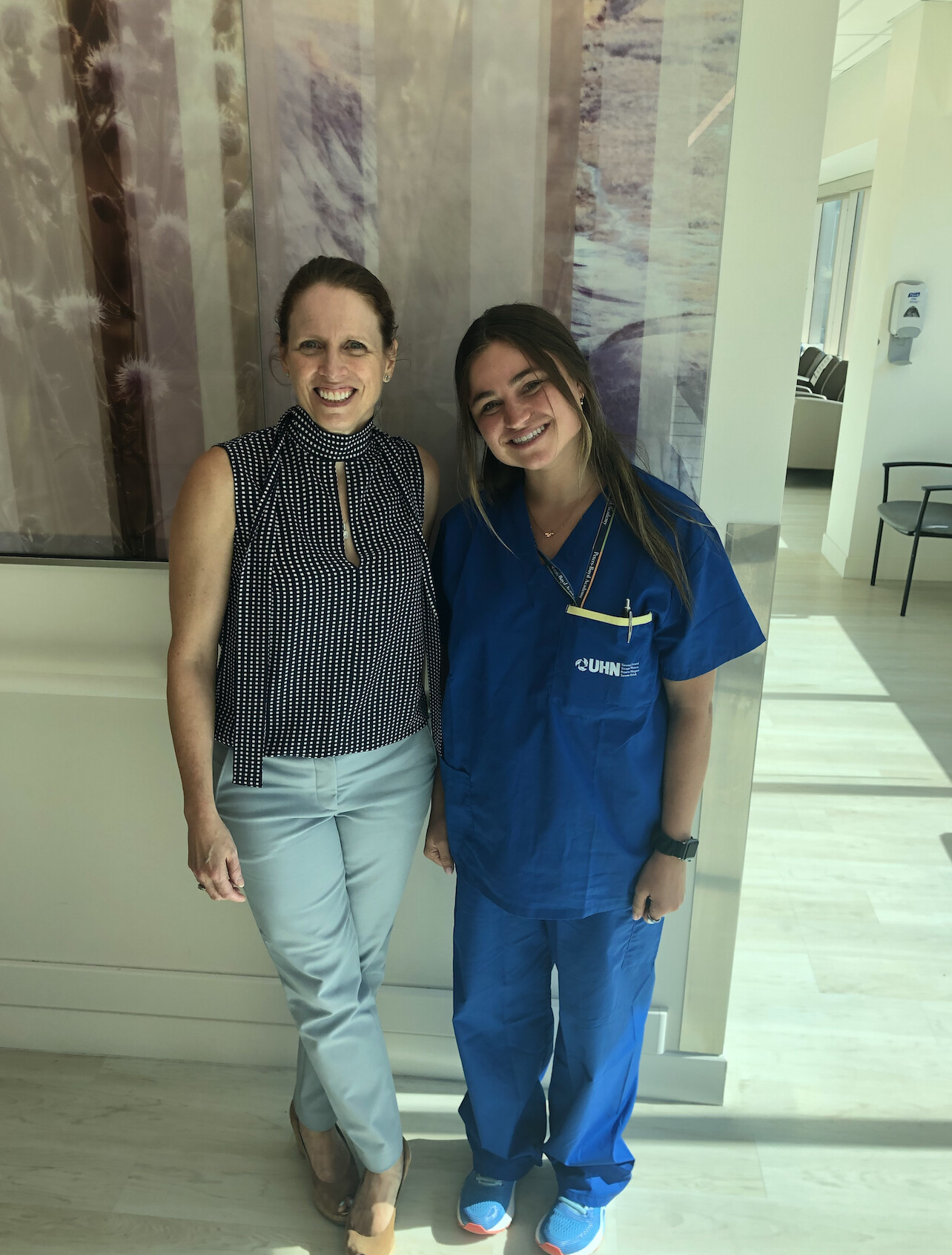Mobile Menu
- Education
- Faculty
- Research
- News & Events
- Divisions
- Equity, Diversity & Inclusion
- About Us

The Summer Investigator Program was started in 2015 as a way to empower the research capacity and productivity of faculty members, while simultaneously promoting training excellence and research exposure for medical students across the full breadth of the ob-gyn specialty.
Medical students who participate in the Ob-Gyn Summer Investigator Program are funded in three ways:
Applications for CREMS and Chair’s are open and will be accepted until February 9, 2024. Apply to CREMS and Chair’s here.
Dr. Lauren Clarfield’s experience in the Summer Investigator Program was meaningful for a few reasons.
At the time, she had just finished her second year of medical school. With Dr. Sarah Ferguson serving as her faculty supervisor, Dr. Clarfield was recruited for a project comparing the efficacy of sentinel lymph node biopsy versus complete lymphadenectomies as the standard of care for surgical staging in high grade endometrial cancer. Complete lymphadenectomies are associated with significant morbidity for cancer survivors and this group set out to help demonstrate where sentinel lymph node biopsy may be equally effective while improving the quality of life for survivors.
The research resonated with Dr. Clarfield, on both a personal and professional level.
“The research work stood out to me because my father survived pancreatic cancer, and a lot of what continues to impact his life are the morbidities related to the treatment he had for his cancer,” Dr. Clarfield said. “Especially as the cancer survivor population grows, this gynaecological oncology research experience was inspiring to me because I really cared about quality of life for these people.”
Years later, Dr. Clarfield is now a PGY2 resident in our program. Looking back, Dr. Clarfield recalls that her experience in the Summer Investigator Program galvanized her interest in pursuing a career in ob-gyn.
“My summer doing the CREMS research project with Dr. Ferguson’s team enabled me to later pursue residency in obstetrics and gynaecology both by affording me the research skills to answer clinical questions for my patients, but also in the way that it exposed me to some really inherently unique aspects of obstetrics and gynaecology that you don’t get exposed to as a medical student,” she said.
“As I learned more about the specialty, I found unique themes making up the foundation of the deeply personal relationships inherent to ob-gyn. I realized, gynaecologists have the privilege to provide care to patients in vulnerable moments ranging from childbirth to cancer treatment, often managing sensitive themes including gender identity and sexual function. This program also enabled me to meet pivotal mentors including Dr. Ferguson, who inspired me through work ethic, communication skills and research works.”
Dr. Clarfield is hardly alone. In the nine years since the program was established, dozens of people who enrolled in the program as medical students have been inspired to pursue careers in ob-gyn.
Dr. Monica Williamson is another trainee who had a formative experience in the program. She recalls that she applied to the program both because she was intrigued by obstetrics and gynaecology and wanted to build on her basic science research experience by pushing deeper into clinical research.
Now a PGY4 resident in our Department, Dr. Williamson found that perhaps the most impactful aspect of her work that summer was the lasting relationship she established with her faculty supervisor, Dr. Marie Czikk.
“I think overall it’s important for medical students to learn how to do research and build connections in the Department,” Dr. Williamson says. “Dr. Czikk has been a mentor for me and provided a lot of support for my application for obstetrics and gynaecology. Through this process, I also got to meet her colleagues in Maternal-Fetal Medicine at Mount Sinai, who were great people to learn from and certainly made me feel welcome.
“I was quite grateful for the research experience overall. You not only develop technical research skills and learn more about the subject matter, but you also build connections in the Department. That is quite valuable and something I think helped to encourage me to stay on the path to ob-gyn training.”
In fact, it's not just the medical students who feel that participating in the program was a rewarding experience.
"I feel very fortunate to be in a Department where this is valued, both for the medical student and for the faculty," said Dr. Eliane Shore, an associate professor in our Department. "In some situations, I've worked with a student over multiple years, even outside of the summer, which is beneficial for both the researcher and the student.
"Some of the students I've had have later decided to pursue ob-gyn as a specialty, and that was special for me, because I felt like I had a role in helping them explore their interests both from a research and a clinical standpoint.
"Watching them progress from pre-clerkship students doing research, and on to clerkship getting a more hands-on experience, and then finally in residency, I get to see them grow and their skills develop. That has been very rewarding as a faculty member."
